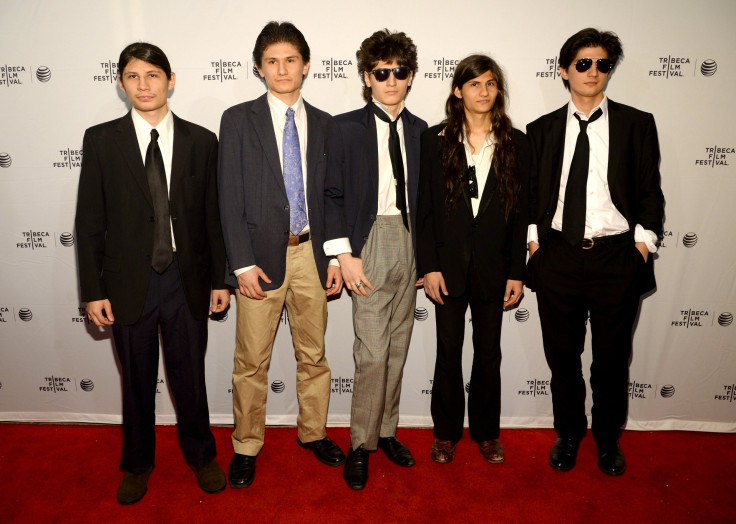'The Wolfpack' Tribeca Film Festival Review: Movies Are Everything To The Angulo Brothers In Flawed Doc

Movies mean a lot of different things to people, but movies meant everything to the Angulo boys. For the six brothers – closed off from the outside world by an overprotective father who feared the dangers of the city around them – movies were the only window to what lay beyond the walls of their Lower East Side apartment in New York. Now the brothers have their own movie, courtesy of Crystal Moselle, whose film “The Wolfpack” – a documentary profiling the Angulo brothers – premiered over the weekend at the 2015 Tribeca Film Festival.
Viewers meet the Angulo brothers as they create their own version of the Quentin Tarantino’s classic heist film, “Reservoir Dogs.” Despite the plain apartment space that serves as their setting, their rendition of the film is actually quite impressive. With elaborate homemade props and costumes, the brothers give their spin on dozens of movies, including “The Dark Knight,” “Pulp Fiction” and “No Country for Old Men,” in a manner similar to the way Jack Black and Mos Def’s video store clerks recreated classic films in Michael Gondry’s “Be Kind Rewind.”
While their united obsession with movies is fun to watch, the catalyst for the brothers’ camaraderie is a sad story. The Angulo boys’ father, Oscar – a failed and out-of-work musician from Peru – set rules to keep his children “safely” inside their apartment at almost all times – the movie at one point makes the claim that the brothers once went a whole year without leaving their building. Susanne Angulo, Oscar’s Midwestern, former-hippie wife was left with the task of home schooling their seven children – there is an Angulo daughter who receives little focus from the film – which earns the family a government stipend on which they survive.
However, as the boys come of age they begin to rebel when looking out of the window at the city outside fails to satisfy the curiosity instilled in them by the movies. Emotional moments ensue as the brothers begin to take steps to form a life outside of the apartment. The film accompanies the boys to the IFC Theater in the village for their first movie theater experience and Susanne tearfully calls her mother, who she has been cut off from for decades.
Though the Angulos’ story is undeniably fascinating and moving, the film shies away from telling the whole story. Physical abuse from the alcoholic Oscar is often hinted at, but never fully addressed. Plus, the story is told with a frenetic pace and order that leaves the audience unable to grasp the timeline of the events depicted or single out any of the brothers as individual characters in the ensemble story. Most importantly, Moselle never explains in the film how the brothers and the filmmaker met, an inevitable curiosity after watching how insulated the family had previously been.
“The Wolfpack” previously won an audience award at the Sundance International Film Festival and is up for a similar award at Tribeca. It is not hard to see why. Watching the Angulo brothers strive together to overcome crippling fear and isolation, one cannot help but be inspired, despite any other flaws in the film.
© Copyright IBTimes 2025. All rights reserved.






















